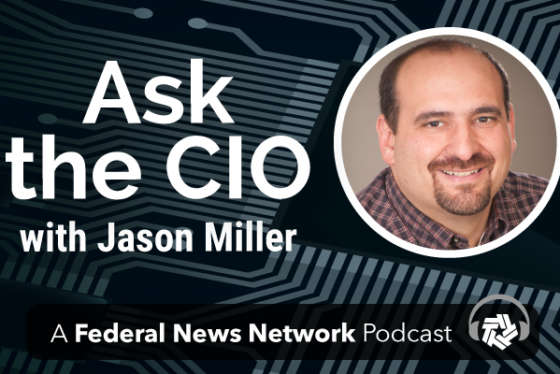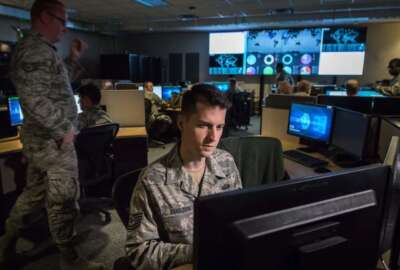Agency and contractor workers attending the National Defense University’s Information Resources Management College to improve their technology management skill set are many times unaware of what it takes to be a federal chief information officer.
NDU’s Information Resources Management College (iCollege) is helping to close that gap by offering a range of courses.
But none may be more important than CIO 2.0 class that focuses less on technology and more on developing policy and strategy and then integrating and communicating that with the rest of the agency.
“There’s a wide range of experiences and skill sets that come in to our courses. We’ll have some people who are very experienced in one or the other, or both, and are coming into keep current about what’s going on in terms of the sector,” said Army Lt. Col. C.J. Horn, a faculty member of the iCollege at NDU. “but, we have a good portion of our students who are coming in looking to have that for that broadening experience. They’ve been experts in their field, but now it’s time for them in order to be beyond just a manager, but to be a leader in their field, they have to start having those other skill sets and other perspectives.”
John Hurley, a professor of systems and technology at the iCollege, said many senior IT managers still fight the uphill battle against being seen just as the technology guy by their senior level peers.
“One of the things we’ve emphasized is that it’s incredibly important for them to understand you’ve got to first focus on the things that are enterprisewide, focus on the mission and focus on the actual business priorities of the organization, but remember that technology is only the enabler,” he said. “One of the challenges that we’ve had is many times the technology is perceived to be the actual outcome.”
Hurley added it’s important not to lose sight of the mission or goals because of how quickly technology changes.
Open to DoD, civilian agencies
This is one major factor in how the iCollege develops and teaches courses.
NDU opens up classes to military and civilian workers of the Defense Department at no cost, and offers a fee-for-service approach to non-DoD civilian feds as well as international and contractor officials. Vendor officials must receive a recommendation from a federal agency to participate.
Students must be at least a GS-12 or the equivalent or have earned at least the rank of major in the DoD.
About 75 percent of all students come from DoD and the rest from these other categories to take a variety of courses to earn any of the 12 certificates or a master’s of science degree in government information leadership.
Horn said students take 39 credits, or 13 courses, to earn the master’s degree.
The 12 certificates range from information assurance to enterprise architecture to CFO and CIO specific programs.
The CIO program focuses on three core areas: policy, information security and information management, and performance assessment.
Students also take five electives in a range of areas, including acquisition, architecture and infrastructure, capital planning and investment, e-government and e-business, strategic planning, process improvement, program management, technology assessment and cybersecurity.
The master’s of science degree has six concentration areas, and the CIO is one of those six. This means students who start out just going for a CIO certificate and decide later to go for a master’s degree can apply the CIO courses to the master’s program, Horn said.
CIOs share experiences
Hurley said the diversity of the students in the class makes the learning experience that much more valuable.
“We focus on experiential learning. Besides the classroom dialogue, we will bring in senior leaders from across the government to share their experiences and insights from their careers,” Horn said. “We also try to take them to local events so they can understand how good organizations actually use their IT to enable their mission. Finally, we also do a lot of case studies too. We believe in learning from other people’s successes and failures in order to try to avoid making the same mistakes in the future.”
He said Interior CIO Bernie Mazer, former White House senior cyber official Melissa Hathaway and former Homeland Security Department CIO Steve Cooper are among the guest speakers this semester.
The iCollege offers both in-person and online courses, and some that combine both approaches to learning.
“Our focus is primarily to make sure the student is pretty serious and really intending to come and work hard. We expect them to be successful,” Hurley said. “One of the strengths of the iCollege is the fact our students come from diverse backgrounds. We have some who haven’t been in school for many years. We have others who are looking for a career change. We have others who are simply trying to elevate their position in their organizations.”
RELATED STORIES:
NDU’s iCollege keeps workforce current on federal buying rules, practices
NDU’s iCollege team on getting beyond checklist approach to cyber
NDU’s McCully promotes continuous learning for CIOs
Copyright
© 2024 Federal News Network. All rights reserved. This website is not intended for users located within the European Economic Area.






